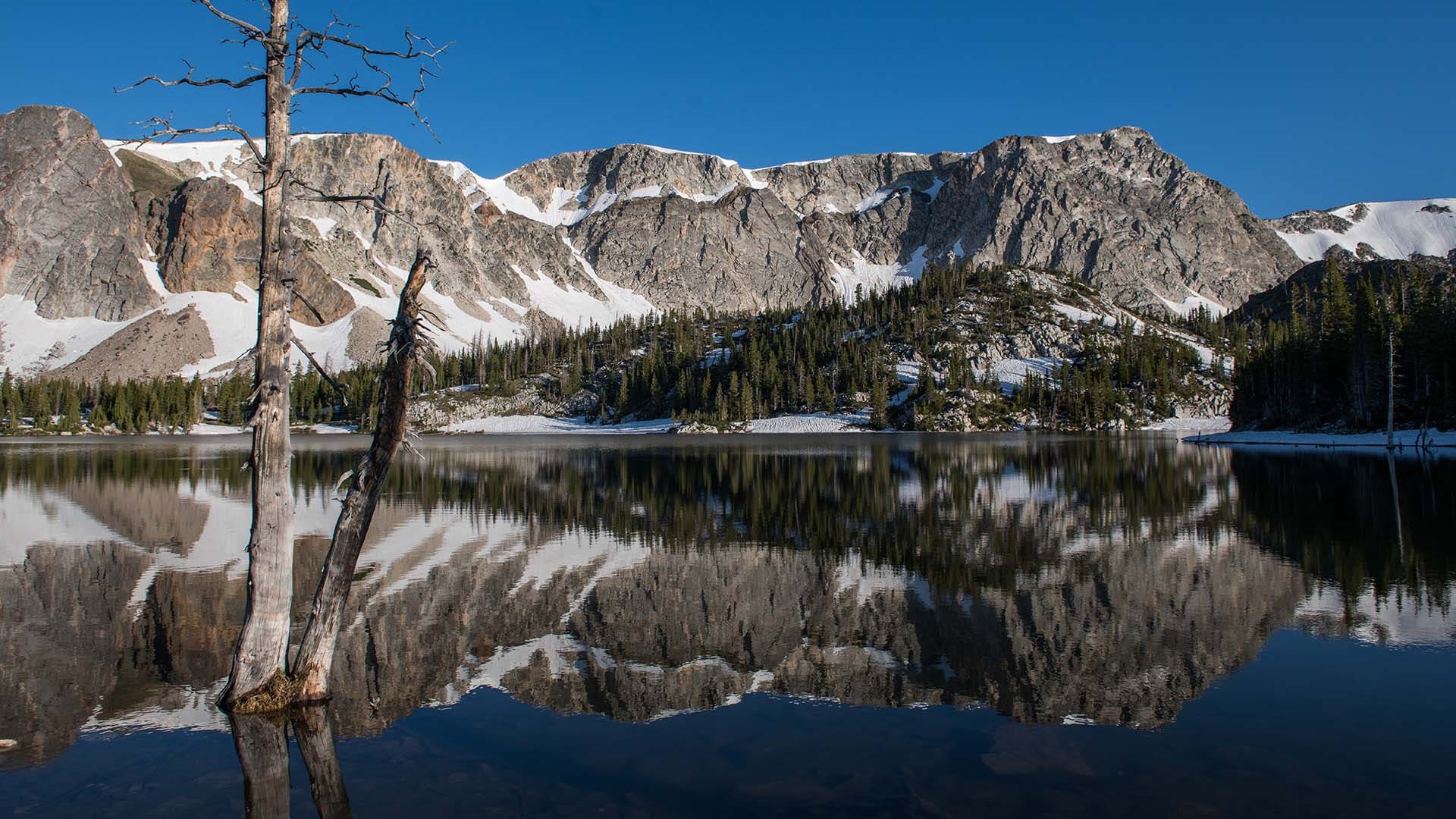Summer Road Trip on the Snowy Range Scenic Byway

Story and photos by Nick Cote
Nick is a freelance travel writer based in Colorado. See more of his work on his website.
The route through the Medicine Bow Mountains features fly-fishing, camping and more.
It’s early July, and the temperature has been hitting the 30s where I live in Boulder, Colorado. I decide I need to head to the mountains to see if the snow has melted and the fish are biting. At the very least I’d get a hit of cold air and a break from Colorado’s crowded Front Range.
My destination is the Snowy Range Scenic Byway, also known as Wyoming Highway 130. It begins straight as an arrow, then starts to wind up into the mountains, leaving the green and golden plains below it. As I drive west out of the sleepy town of Centennial, Colorado, the rolling plains begin to crumple, rising upward as the road enters the Medicine Bow-Routt National Forest. Medicine Bow Peak and the surrounding mountains don’t look like much from a distance, obscured by foothills and wildflower-studded alpine tundra flats. But in less than an hour, the steep, snow-covered mountainside reveals itself as the road climbs to 3,300 metres above sea level. The byway is normally open from Memorial Day through October, but snowfields linger throughout the year, replenishing the frigid, crystal-clear lakes below.
On this trip, warmer temperatures arrive unusually late. At the West Laramie Fly Store, I ask about fishing conditions and am told that Mirror Lake was half-frozen a week ago. Steep gullies in the mountains run nearly vertical into the lakes, with massive snow overhangs threatening to break loose as the sun warms the slopes. The mountains hover in a transitional state—winter hasn’t fully released its grip yet—keeping a handful of picnic areas and campgrounds snowed in for a few extra weeks.
The confused state of the seasons doesn’t stop me or a handful of optimistic fly fishers from trying their luck. I park at the West Lake Marie trailhead, one of the few non-snow-covered pullouts, and assemble my gear. Then, I head down a steep bank, trying not to slide into the icy creek as I cross a snow patch. The creek is full of trout, lazily suspended in the gentle current. I throw just about every fly I have in my arsenal, but none seem to work. I tell myself it’s still too cold for the fish to bite as I scramble back up the bank and through the snow. There’s a reason they don’t call it “catching.”
By the time I reach my campsite, it’s nearly dark. The smell of campfire and sound of an acoustic guitar hang in the air as the temperature drops with the sun. I put on a down jacket and settle in, counting the stars as they start to appear. I’m far away from city lights, so it doesn’t take long to lose count. A bright star shoots below the horizon before I call it a night and retreat to the warmth of my sleeping bag. The sun rises before 6 a.m., and I’m eager to warm up at the Hobo Hot Pool just down the road in Saratoga.
Whether you’re recovering from a hike to the top of the 3,660-metre Medicine Bow Peak or thawing out after a cold night, the 38-plus degree waters at the hot springs are a welcome—and free—respite before continuing on the byway.
Driving Through America the Beautiful
A trip from Denver to Montana shows off the vast and varied scenery in the U.S.
Summer Road Trip on the Snowy Range Scenic Byway
The route through the Medicine Bow Mountains features fly-fishing, camping and more.
Learning to Love Wyoming’s Interstate 80
If you’re willing to stop and take some time, you’ll find gems along this infamous highway.




